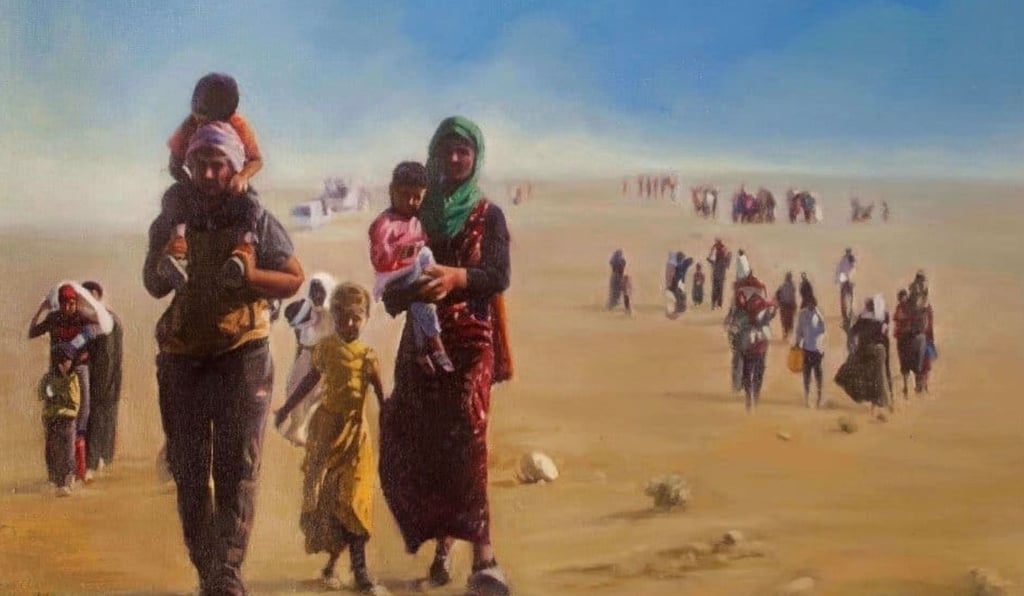Burned for Defiance: Yazidi Girls and the Global Outlook on Gendered Violence
In 2016, 19 Yazidi girls were set ablaze in an iron cage for refusing to become the sex slaves of ISIS militants in Iraq. This was not an isolated incident, but part of a larger systematic attack. It was an attempt to terrorize the Yazidi population following the capturing of the Sinjar region by the ISIS in 2014.
Charu Singh
5/8/20242 min read


In 2016, 19 Yazidi girls were set ablaze in an iron cage for refusing to become the sex slaves of ISIS militants in Iraq. According to survivors’ testimonies collected by UN investigators, ISIS fighters locked the women in iron cages and set them on fire in front of crowds, as a warning to other enslaved women. This was not an isolated incident, but part of a larger systematic attack. It was an attempt to terrorize the Yazidi population following the capturing of the Sinjar region by the ISIS in 2014.
Yazidis are a small community that resides around the Sinjar mountains in Northern Iraq. Within days of the 2014 attack on the Yazidis in Sinjar region, over 6,000 women and girls were abducted. They were taken to ISIS training camps to be indoctrinated, and were subjected to rape, forced into marriage, and religious conversion. This was not just a case of wartime violence and rape, it was a premeditated campaign strategy of religious and ethnic cleansing.
This type of systematic, gendered violence has plagued other regions as well, such as the Rohingya Crisis in Myanmar which involved not only the mass displacement and killing of the Rohingya Muslim population but also violence against women. In Chibok, Nigeria around 300 girls were abducted from their school dormitories, being forced to convert to Islam, and marry Boko Haram militants.
Resistance was repressed by violence and hunger, if not imminent death. All these acts around the globe are not random incidents but rooted in centuries of marginalisation, legitimised by a radical interpretation of religion. Women become primary targets because of the ideological and psychological weightage of the subjugation of women due to their ability to carry lineage and culture. They are targeted to pursue systematic erasure of certain communities to break their social, cultural, and reproductive continuity. This is a violation of individual freedom in efforts to assault collective identity.
According to UN Women and UNFPA, over 70% of women in conflict zones experience gender-based violence which is clear evidence that such acts are not isolated tragedies but systematic strategies of war and erasure. This alarmingly calls for a sustained commitment to accountability, survivor dignity, and the protection of vulnerable communities from such targeted erasure.
Revolutionising Youth Media.


